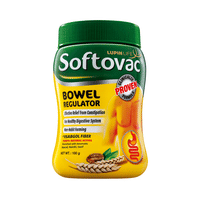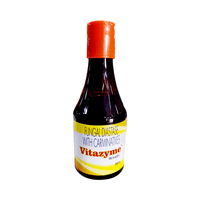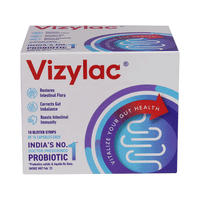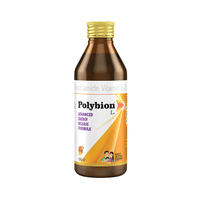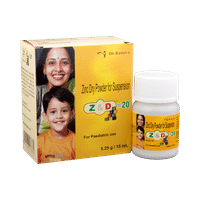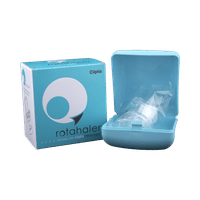Rs.29.90for 1 vial(s) (10 ml Injection each)
food interaction for Chloraxin Injection
alcohol interaction for Chloraxin Injection
pregnancy interaction for Chloraxin Injection
lactation interaction for Chloraxin Injection
food
alcohol
pregnancy
lactation
No interaction found/established
Consumption of alcohol with Chloraxin 1gm Injection may cause a disulfiram-like reaction, leading to symptoms such as flushing, increased heart rate, low blood pressure, nausea, lightheadedness, and severe headache.
UNSAFE
The safety of Chloraxin 1gm Injection during pregnancy has not been established. There are no adequate and well-controlled studies in pregnant women, and animal data on reproductive toxicity are insufficient. Your doctor will weigh the benefits and any potential risks before prescribing.
CONSULT YOUR DOCTOR
Chloraxin 1gm Injection may be unsafe to use during breastfeeding. Limited human data suggests that the drug may pass into the breastmilk and harm the baby. It should be used only if the expected benefit outweighs the potential risk. Please consult your doctor.
CONSULT YOUR DOCTOR
SALT INFORMATION FOR Chloraxin 1gm Injection
Chloramphenicol(1gm)
Chloraxin injection uses
{med_name} is used in the treatment of severe bacterial infections. It is used to treat certain types of serious infections caused by bacteria when other antibiotics cannot be used.
How chloraxin injection works
Chloraxin 1gm Injection is an antibiotic which stops the growth of bacteria. It does so by preventing synthesis of essential proteins required by bacteria to carry out vital functions. This does not directly kill the bacteria, but prevents them from increasing in numbers, and eventually clears up the infection.
Common side effects of chloraxin injection
Vomiting, Nausea, Diarrhea, Taste change, Injection site reactions (pain, swelling, redness)
SUBSTITUTES FOR Chloraxin Injection
13 Substitutes
13 Substitutes
Sorted By
 Rs. 5.95save 81% more per ml of Injection
Rs. 5.95save 81% more per ml of Injection Rs. 19.92pay 30% more per ml of Injection
Rs. 19.92pay 30% more per ml of Injection Rs. 46.50pay 1425% more per ml of Injection
Rs. 46.50pay 1425% more per ml of Injection Rs. 70.31pay 131% more per ml of Injection
Rs. 70.31pay 131% more per ml of Injection Rs. 96.23pay 3057% more per Injection
Rs. 96.23pay 3057% more per Injection
Expert advice FOR Chloraxin Injection
- Your doctor has prescribed Chloramphenicol to cure your infection and improve your symptoms.
- Do not skip any doses and finish the full course of treatment even if you feel better. Stopping it early may make the infection to come back and harder to treat.
- The injection may be given into a muscle (intramuscularly) or into a vein (intravenously).
- Your doctor may get blood tests done to check your blood cells before starting treatment and regularly thereafter.
- Do not use Chloramphenicol if you are pregnant, planning to conceive, or breastfeeding.
- Inform your doctor if you have liver or kidney disease.
- Your doctor has prescribed Chloramphenicol to cure your infection and improve your symptoms.
- Do not skip any doses and finish the full course of treatment even if you feel better. Stopping it early may make the infection to come back and harder to treat.
- This can be taken either with or without food.
- Your doctor may get blood tests done to check your blood cells before starting treatment and regularly thereafter.
- Do not use Chloramphenicol if you are pregnant, planning to conceive, or breastfeeding.
- Inform your doctor if you have liver or kidney disease.
Frequently asked questions FOR Chloraxin 1gm Injection
Chloramphenicol
Q. How long does Chloraxin 1gm Injection takes to work?
Usually, Chloraxin 1gm Injection starts working soon after taking it. However, it may take some days to kill all the harmful bacteria and make you feel better.
Q. What if I don't get better after using Chloraxin 1gm Injection?
Inform your doctor if you don't feel better after finishing the full course of treatment. Also, inform him if your symptoms are getting worse while using this medicine.
Q. Can I stop taking Chloraxin 1gm Injection when my symptoms are relieved?
No, do not stop taking Chloraxin 1gm Injection and complete the full course of treatment even if you feel better. Your symptoms may improve before the infection is completely cured.














